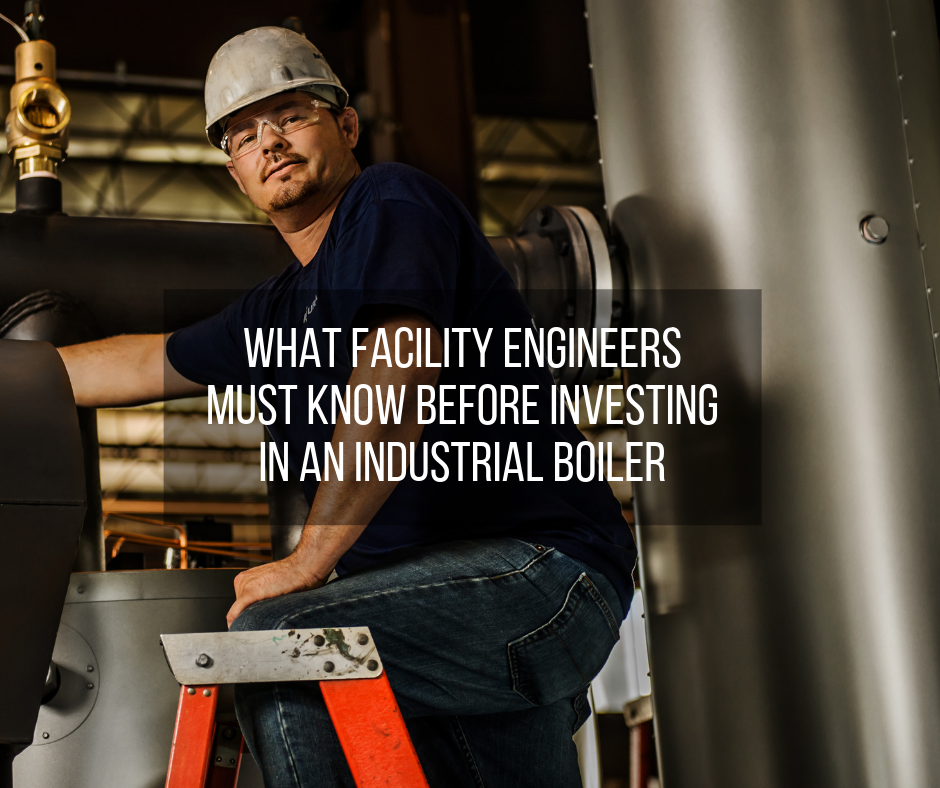 When it’s time to invest in a new industrial steam boiler, the facility engineer is going to have a lot of input. After all, he or she is the person who’s going to be working with and monitoring the boiler most of the time. Of course, that means the facility engineer should have a clear idea of what they need in a boiler before making such a large investment. Here are five things every facility engineer should know before investing in a new steam boiler.
When it’s time to invest in a new industrial steam boiler, the facility engineer is going to have a lot of input. After all, he or she is the person who’s going to be working with and monitoring the boiler most of the time. Of course, that means the facility engineer should have a clear idea of what they need in a boiler before making such a large investment. Here are five things every facility engineer should know before investing in a new steam boiler.
Facility Steam Needs
As a facility engineer, you should be familiar with how much steam your facility needs on a daily basis. Obviously, you need a boiler that can handle steam needs at their peak. This is actually easier with several smaller boilers that can be turned on and off as needs change. Of course, facilities aren’t always running at peak capacity, so while you need to make sure your new boiler has the power to meet your peak needs, it’s also important that you have a system in place that can handle your average steam needs in an efficient manner.Available Space
Space always seems to be at a premium in a boiler room or steam plant. If possible, you want a boiler that isn’t going to take up the entirety of the boiler room, which is often the case with traditional fire tube boilers. It’s usually best for the engineers who work in the boiler room to have space to move around, which is made easier with modular water tube boilers that are roughly half the size of conventional boilers. It’s also good to have a little extra space in a boiler room so you can add an extra boiler later on if necessary, which is another good reason to look for boilers with a compact design.Operating Costs
Unfortunately, the price of a boiler is only part of the financial commitment when buying a boiler. You also need to be cognizant of the price of fuel and other operating costs that are needed to make the boiler run. Keep in mind that many of the newer water tube boilers are designed to be more fuel efficient than traditional fire tube boilers. Many of them also allow you to switch back and forth between different types of fuel, which can help you cut down on your new boiler’s operating costs without sacrificing productivity.Safety Record
Safety should always be a top priority when investing in a new boiler. Your best bet is to look for a boiler manufacturer with a flawless safety record. Major explosions have become rare, even with older fire tube boilers, but they are next to impossible with water tube boilers. The design of water tube boilers is such that even if something goes wrong, there won’t be a catastrophic explosion. This is a big reason why a company like Miura that manufactures water tube boilers has never had a reported boiler explosion.Maintenance Routine
Before investing in a boiler, it’s important to understand how much maintenance and upkeep will be required. After all, keeping up with yearly inspections and routine maintenance will have a direct impact on the boiler’s efficiency, safety, and longevity. Conventional boilers typically have lengthy inspections that can take multiple days to complete, which can be an inconvenience for many facilities. On the other hand, water tube boilers can usually be inspected in less than a day. Companies like Miura also offer remote monitoring systems that make it easier to keep up to date on any minor issue that should be addressed, helping to keep boilers running safely and efficiently.Contact Miura today to learn more about investing in a boiler.




